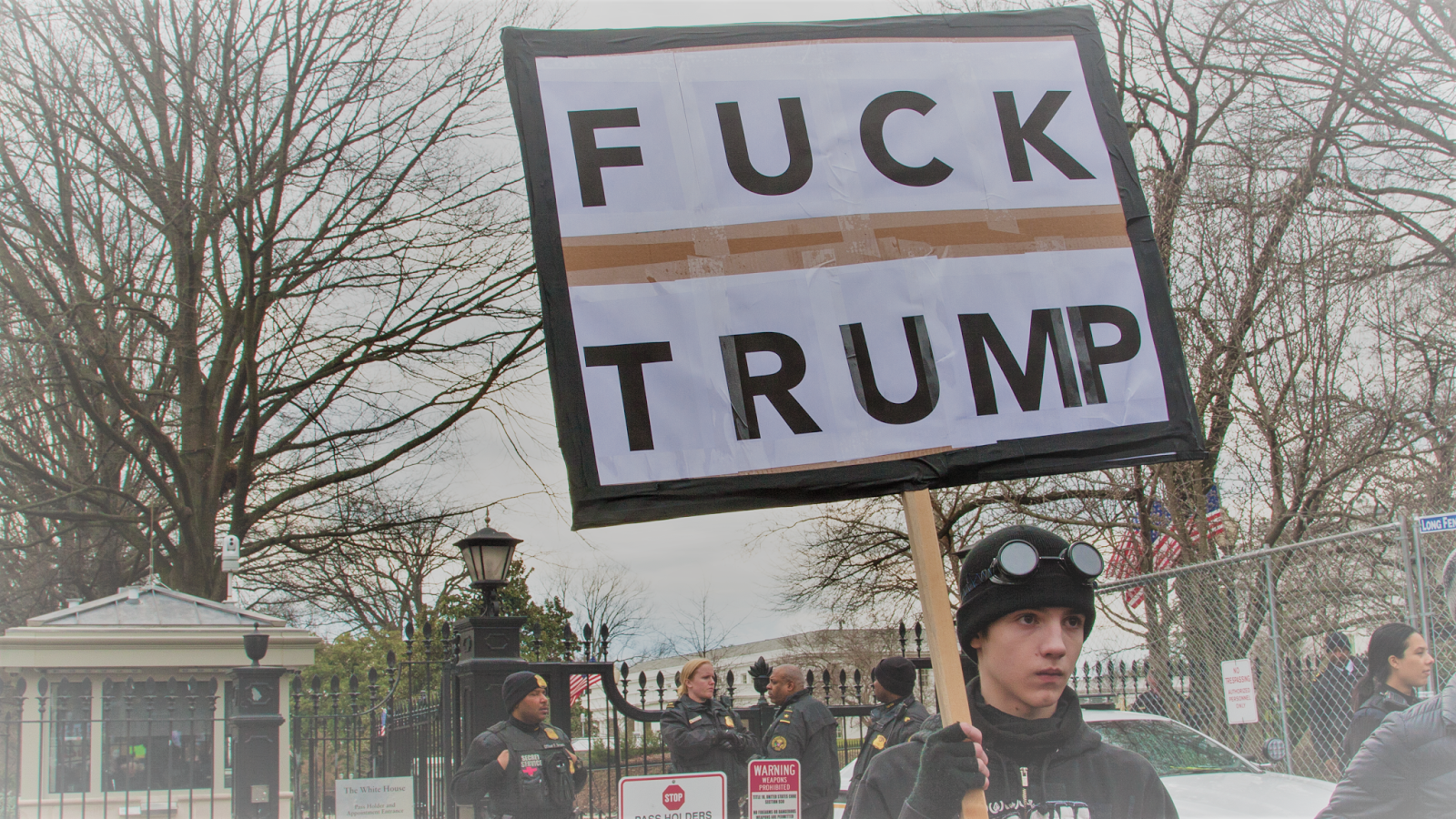Co-founder of ELSC, Co-Creator of “Ask A Stripper” and author of The Ethical Stripper (2022), Stacey Clare has long experience of having to work around State interventions that act more to placate public opinion than actually help …
I wish I could say I was writing this article with a sense of justice, a burning passion to fix something broken and create positive change. Those were the drivers of my activism 10 years ago – I still believed we weren’t totally fucked. I’ve since seen the advancement of the digital age encroaching exponentially on our privacy, from our finances to our romantic lives, with Big Data and hyper-surveillance eroding our civil liberties year by year. As a sex worker, I’ve had an insight into the ways digital spaces have become toxic and hostile to those who exist outside the current State and economic hegemonies.
There was a period of about five years from 2013-18 when being a sex worker on the internet was fun. Not merely because it was an effective way to find, track, and screen clients – increasing our safety and visibility – but because social media was a tool for sex workers to find each other, build community, and just … fucking share memes. In 2013, I co-founded a sex worker-led organisation, East London Strippers Collective (ELSC), by starting a Facebook page. Back then social media was an effective strategy for building power among community members.
There used to be an incredibly active network, a private Facebook group called Women’s Work, for strippers and sex workers to share information and talk shit about bad clients and clubs, giving essential feedback about industry operators. It can’t be underestimated how valuable peer networks like this are, open-sourcing searchable data for those seeking to avoid risk in the sex industry. Peer networks are harm-reduction. In 2019, this group, which had thousands of members globally by this point, was deleted – no warning from the tech giant we all relied on, no reason given. It’s just one example, but there have been countless instances of sex workers being erased in a click, our visibility and presence online snuffed out.
There is a political reason for this; in 2018 the US passed laws called FOSTA/SESTA (Fight Online Sex Trafficking Act and the Stop Enabling Sex Trafficking Act, federal and state laws, respectively). They made firms based in the US criminally liable for the activities on their platform, thus fuelling a sudden moral panic, which saw the mass deletion of sex workers accounts and pages; even private messages. By removing and deleting reliable resources that sex workers themselves had carefully nurtured over many years, the impact of FOSTA/SESTA had the opposite effect of its stated purpose, censoring and curtailing harm-reduction and therefore leaving sex workers more vulnerable.
Sex workers in the US who had relied on online ad listings to find clients were turning to street work. Organisations such as COYOTE (Call Off Your Old Tired Ethics, an organisation founded by Margot St. James in 1973) reported anecdotal rises in violence against sex workers, with predatory clients feeling more emboldened to violate boundaries. All the qualitative research, including a paper published in peer-reviewed academic journal Anti-Trafficking Review, has shown that since FOSTA/SESTA was ratified, sex workers have suffered more negative consequences than positive. I remember very specifically when the tide changed on social media. It’s not a coincidence to me that these are the years Andrew Tate finessed his craft before launching Hustler University in 2021, teaching men how to identify, pursue and coerce women online who fit the profile of someone they could manipulate; young, hot, and financially precarious.
The ELSC Instagram (an account that literally calls out abuses in the sex industry) was approached by creepy dudes offering to “look after” women, whose private accounts showed nothing but predictable profile pictures of a Bugatti or Maserati. This is the climate into which the Online Safety Act 2023 is being delivered. The internet has become, like everywhere else, hostile and treacherous for sex workers to navigate. We are not welcomed by mainstream online platforms, which simply do not understand how we create and build our own strategies for power and safety amongst ourselves. The Online Safety Act 2023 will impact sex workers’ incomes, safety, and visibility. That’s not a piece of news or a polemic statement – it’s an objective reality. The legislation is the latest in a long line of historical laws that restrict sex workers’ movements, freedoms, and civil liberties. And, like clockwork, as with all other previous laws, it was created by policy-makers who have little to no contact with, or any lived experience of, sex workers or the sex industry besides the odd stray punter with a political career.
For a run down of historical laws that aim to “prevent” harm but have in fact been harmful to sex workers, look no further than the Contagious Diseases Act 1866 which gave police new powers to determine who was a prostitute, forced suspected women to register with the police and submit to invasive medical examinations, and gave magistrates new powers to detain and sentence women in asylums for up to three months. Or the Sexual Offences Act 1959, which criminalised brothels but never legally defined them, leaving it to be haggled over in case law which found “premises only become a brothel when more than one [person] uses premises for the purposes of prostitution, either simultaneously or one at a time”* meaning any two sex workers who choose to work together somewhere for their own safety can be punished with up to seven years in prison. Or the Policing And Crime Act 2009, which made an absolute pig’s ear of trying to introduce a licensing regime for strip clubs. It only served to give councils and local authorities more powers to either restrict Sexual Entertainment Venue licenses (thus driving stripping/lapdancing underground by criminalising it) or create monopolies by licensing only a chosen few premises – severely restricting workers options, as they could no longer use their freedom of movement as a labour force to agitate for improved conditions.
Sex worker-led organisations have been sounding the alarm for several years already. On March 4th, an online conference was organised by committee members of the trade union branch, Sex Workers United. The conference was called “Challenging Sex Worker Invisibility: Actioning the Case for Sexual Services Protections in the Online Safety Act 2023”. Someone I look up to as a mentor in the movement, Nikki Adams, a spokesperson for the English Collective of Prostitutes, spoke at the event. She said:
“We met with OFCOM in April 2022; we told them our concerns. They found it interesting; it was a goodmeeting, but fundamentally, nothing has changed. I know (broadcasting watchdog) Ofcom has strived to reassure people that [the act] won’t result in sex workers’ adverts being removed. But in our view that does not take into consideration the sexist and racist stereotyping that sex workers are subjected to, particularly migrant sex workers, and the vested interests involved in promoting a particular kind of anti-trafficking agenda… the police [are] dependent on a lot of that anti-trafficking narrative to increase their budgets and there’s a whole lobby of people that are determined to promote misinformation to push forward the agenda of increased criminalisation.”
I’m only one sex worker among many who has been trying to report on the failures of policies on sex work. It turns out that to succeed in media as an investigative journalist, one has to remain indifferent and impartial to their subject. As someone who has publicly outed myself as a sex worker, I have tarnished my own voice and ability to be taken seriously, at least within legacy media circles. There’s a reason we sex workers are so salty. Because try as we might, our voices go unacknowledged by the journalistic classes, whose mainstream feminism has long dominated public discourse about the sex industry by repeating the mantra “sex work is commercial sexual exploitation”, with policy-makers following suit. The Radical Feminist Left has unapologetically named us “the pimp lobby” without any sense of irony over the ways the laws and policies they have fought for have, in almost every case, doubled down on the oppressive and abusive treatment of sex workers by the rest of society, merely amplifying the ways in which we can be mistreated and denigrated, not reducing them.
So, this is why I struggle to remain hopeful. The more I see the layers of dreadful misrepresentation, misinformation and mishandling of legal processes with real-life, real-world consequences, the more I want to retreat to the forest. It takes an extraordinary amount of time and resources to investigate and understand the complexities of the sex industry, how it works and who is using it – work that anyone charged with creating and enforcing policy should do and be held accountable for.
Mercifully, thanks to the emergence of sex worker visibility in recent years, particularly on the internet, more individuals are beginning to be able to conceptualise sex workers as people doing a job who deserve safety and rights at work just like anyone else. More people are dabbling with forms of sex work now more than ever before, and therefore, the circle of those with some form of lived experience of the sex industry is widening. This means more people can relate to voices from within sex work when they declare sex work is work and the future of the sex industry must be worker led. “Nothing About Us Without Us” has never meant more to me than it does now.
~ Stacey Clare
This article first appeared in the Summer 2024 issue of Freedom Journal.
Pic: Sex workers protest by juno mac








